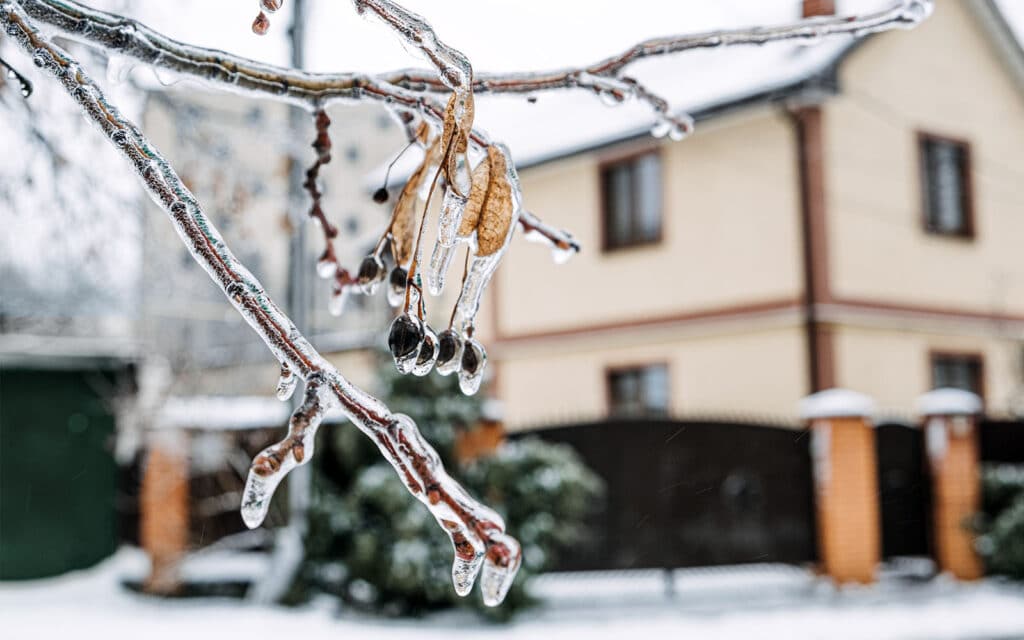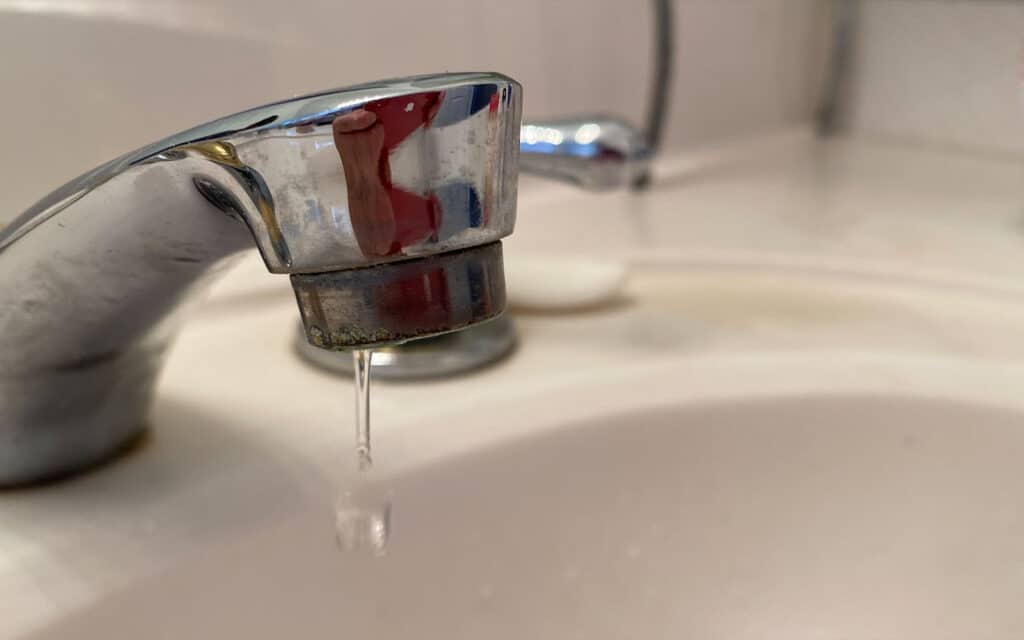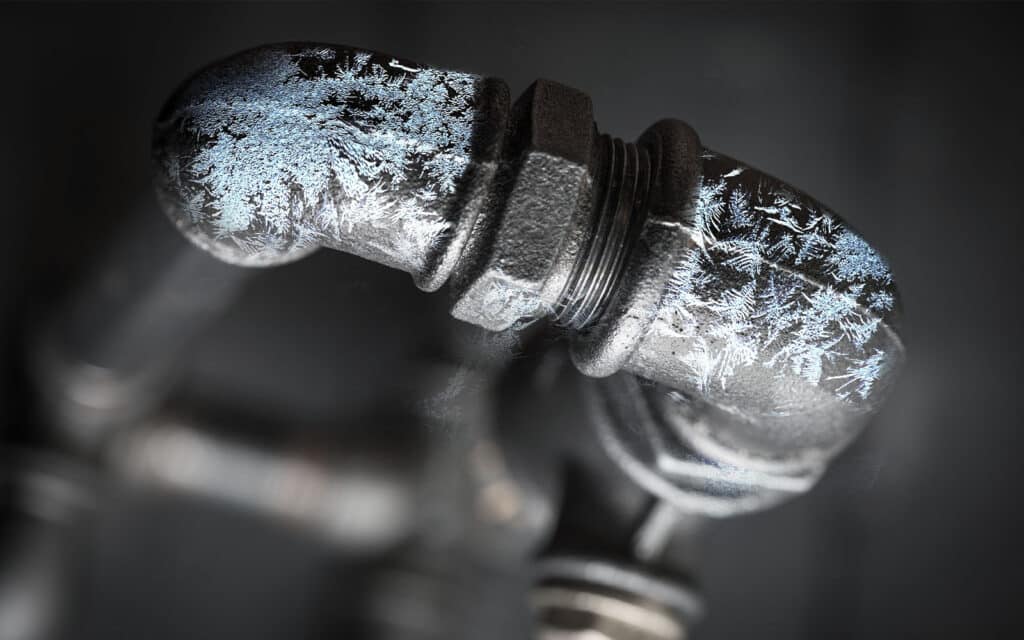
Get Ahead of the Freeze with Practical Frozen Pipes Prevention Strategies
Winter in Memphis can be unpredictable, with temperatures sometimes dipping below freezing. When this happens, your home’s plumbing system is at risk, particularly if it’s not adequately prepared. Frozen pipes can lead to severe consequences, including burst pipes and significant water damage, which can be both costly and time-consuming to repair. To avoid these headaches, it’s essential to take preventive steps well before winter sets in.
Why Frozen Pipes Are a Major Concern in Memphis
While Memphis winters are typically milder than those in northern regions, the occasional cold snap can still wreak havoc on your plumbing. When water inside your pipes freezes, it expands. This expansion creates pressure inside the pipe, which can eventually cause the pipe to crack or burst. The result is a potentially catastrophic water leak that can damage your walls, floors, and belongings, not to mention the disruption it causes to your daily life.
Understanding the Risks of Frozen Pipes
Pipes in unheated spaces like basements, attics, garages, and exterior walls are particularly vulnerable to freezing. But even pipes running through your home can freeze if they are exposed to cold air through drafts or are poorly insulated.

Prevention Strategies: Avoiding Frozen Pipes in Extreme Cold Conditions
While it’s essential to understand how to detect frozen pipes, it’s equally crucial to know how to prevent them in the first place, especially in the frigid temperatures we’re currently experiencing in Memphis. The following sections will provide a comprehensive guide on a range of preventative measures and their effective implementation. We’ll discuss the importance of insulating your pipes, both exterior and interior, and maintaining an optimal home temperature through thermostat settings and effective use of space heaters. Additionally, we’ll delve into ensuring proper ventilation, utilizing the drip and trickle method, preparing for extended power outages, and the importance of correctly sealing any leaks or cracks. Our aim is to equip you with the knowledge you need to safeguard your home against the damaging effects of frozen pipes. Let’s dive in.
Interior and Exterior Pipe Insulation
When it comes to protecting your pipes from freezing, insulation is a critical step. The process involves adding a protective layer around your pipes to reduce heat loss and prevent them from freezing. It’s important to note that there are different methods and materials used for interior and exterior pipe insulation.
Interior Pipe Insulation
For interior pipes, foam pipe insulation is a popular choice. This material is easy to install and cost-effective. You can find this in most hardware stores in Memphis. It comes in the form of tubes that can be cut to size to fit your pipes. The tubes have a slit on one side which allows you to open them and wrap them around the pipes. For pipes that are hard to reach or located in tight spaces, consider using insulating foam sealant. This type of insulation is sprayed into the space around the pipe, where it expands and forms a tight seal.
Another technique for interior pipe insulation is the use of heat tape or heat cables. These devices are wrapped around the pipes, and when plugged in, they warm the pipes to prevent freezing. It’s essential to follow manufacturer’s instructions when using these devices to avoid any safety hazards.
Exterior Pipe Insulation
Exterior pipes are exposed to more harsh weather conditions and therefore require more robust insulation methods. One effective method is to use fiberglass pipe insulation, which comes in the form of a roll and is wrapped around the pipe. It’s important to cover this type of insulation with a weather-resistant material (like plastic wrap) to protect it from moisture, as wet fiberglass loses its insulating properties.
Another method for insulating exterior pipes is to use specially designed insulated faucet covers. These covers fit over exterior faucets and protect them from freezing temperatures.
Remember, prevention is always better than cure. Insulating your pipes, both interior and exterior, is a proactive step in preventing frozen pipes, and ultimately, avoiding costly damages to your home. If you need help or are unsure about the right insulation method for your pipes, feel free to reach out to us at Best Care. Our team of experienced professionals in Memphis is always ready to assist.
Maintaining Proper Home Temperature
Maintaining a consistent and sufficiently warm temperature in your home is another effective preventive measure against frozen pipes. This involves careful settings of your thermostat and the strategic use of space heaters. Both of these methods should be approached with caution to ensure safety and efficiency.
Setting Thermostats
As a rule of thumb, try to keep your thermostat set to a minimum of 55 degrees Fahrenheit, even when you are out of the house. This temperature is generally sufficient to keep the heat circulating and to prevent your interior pipes from freezing. It is also a good idea to keep the thermostat at the same temperature both during the day and at night. While this approach may result in a slightly higher heating bill, it can help prevent the much more costly situation of dealing with frozen or burst pipes.
Keeping Interior Doors Open
In addition to managing your thermostat settings, it’s highly beneficial to keep interior doors open throughout the house. Closed doors can create cooler pockets of air in lesser-used rooms or spaces, making the pipes in these areas more susceptible to freezing. By keeping the doors open, you allow warm air to circulate freely throughout your home, contributing to an evenly distributed temperature. This approach can be particularly effective for rooms that contain water pipes and are away from the main living areas, such as utility rooms or basements. Remember, the goal is to maintain a consistent temperature in every area of your house to prevent any part of your plumbing system from freezing during these cold Memphis conditions.
Using Space Heaters Effectively
Space heaters can be an excellent tool to provide extra heat in areas that are particularly susceptible to freezing, such as unheated basements or garages. However, it is crucial to use space heaters safely to avoid fire hazards. Never leave a space heater unattended and always keep it away from flammable materials. Also, ensure that any space heater you use has a certification from a recognized testing laboratory and features an automatic shut-off to turn the heater off if it tips over or overheats.
Remember, the goal is to maintain a consistent, warm environment in your home to prevent your pipes from freezing. So, whether you’re adjusting your thermostat or setting up space heaters, the key is to avoid letting your home’s temperature drop too drastically.
Furnace Maintenance and Filter Change
Keeping your furnace in good working condition is crucial in maintaining a comfortable and warm environment in your home, especially during the cold Memphis winter. One of the key aspects of furnace maintenance is timely and efficient filter replacements. The role of the furnace filter is to remove particles and contaminants from the air before it circulates through your heating system and into your home. A clean and efficient filter not only ensures cleaner air but also improves the efficiency of your furnace, reducing energy consumption and extending its lifespan.
However, over time, the filter can become clogged with dust and other particles, reducing its effectiveness and forcing your furnace to work harder. This can result in increased energy usage and higher costs. By regularly checking and changing your furnace filter, you can prevent these issues and ensure optimal furnace performance.
Start Early: Why Pre-Winter Preparation is Key
The best defense against frozen pipes is preparation. By taking action in the fall, you can ensure your home is ready for any cold weather that comes its way. Pre-winter preparation involves more than just insulating your pipes; it also means checking your home for drafts, ensuring your heating system is in good working order, and making sure you have an emergency plan in place.
Pre-Winter Checklist:
Check Your Heating System: Make sure your heating system is functioning properly and is capable of maintaining a consistent temperature throughout your home, even during the coldest days. If your heating system is outdated or in need of repair, address these issues before winter begins.ecause these areas may not receive as much warm air as the rest of your home, particularly if they’re on an exterior wall. A simple, but effective, way to protect these pipes is to keep cabinet doors open. Doing so allows the warmer air from your home to circulate around the pipes, reducing the risk of freezing. Remember, the goal is to maintain an evenly warm environment within every nook and cranny of your home.
Inspect Your Plumbing: Conduct a thorough inspection of your home’s plumbing system. Look for any signs of leaks, corrosion, or wear and tear that could make your pipes more susceptible to freezing. Pay special attention to pipes in unheated areas like garages and attics.
Seal Gaps and Cracks: Cold air can enter your home through gaps and cracks around windows, doors, and where pipes enter your house. Sealing these openings with caulk or weatherstripping helps keep cold air out and warm air in, which is crucial for protecting your pipes.

Critical Steps for Frozen Pipes Prevention
Once your home is prepared for winter, there are several specific steps you can take to prevent your pipes from freezing. These measures are simple yet highly effective and can save you a lot of trouble in the long run.
1. Insulate Exposed Pipes
Insulating your pipes is one of the most effective ways to prevent them from freezing. Pipe insulation is available at most hardware stores and is easy to install. Simply wrap the insulation around any pipes that are exposed to cold air, such as those in your basement, attic, or garage. For added protection, consider using heat tape on particularly vulnerable pipes.
2. Maintain a Consistent Indoor Temperature
Keeping your home at a steady temperature, even when you’re away, is crucial for preventing frozen pipes. Set your thermostat to no lower than 55°F to ensure your pipes remain warm enough to avoid freezing. During extreme cold, it’s also a good idea to open cabinet doors under sinks to allow warm air to circulate around the pipes.
3. Let Your Faucets Drip
When temperatures drop significantly, leaving your faucets slightly open so that water drips can prevent your pipes from freezing. Running water, even at a trickle, helps relieve pressure in the pipes and reduces the likelihood of freezing and bursting.
4. Winterize Outdoor Faucets and Hoses
Outdoor faucets and hoses are particularly susceptible to freezing. Before the first freeze, disconnect and drain all outdoor hoses. Shut off the water supply to outdoor spigots, and leave the spigots open to drain any remaining water. This simple step can prevent water from freezing in the hose or connected pipes, which can lead to bursts.
5. Monitor Weather Forecasts
Keeping an eye on the weather is an important part of frozen pipes prevention. If a particularly cold spell is forecast, take extra precautions to protect your pipes. This might include turning up your thermostat, running your faucets, or adding additional insulation to exposed pipes.
What to Do If Your Pipes Freeze
Despite your best efforts, there’s still a chance your pipes could freeze during an unusually cold winter. If you suspect a pipe has frozen, quick action is essential to minimize damage.
- Turn Off the Water Supply: The first step is to immediately shut off the main water supply to prevent flooding if the pipe bursts.
- Thaw the Pipe: Use a hairdryer, heating pad, or warm towels to slowly thaw the frozen section of pipe. Start near the faucet and work your way back toward the frozen area. Never use an open flame or heat gun, as this can damage the pipe and create a fire hazard.
- Call a Professional: If you can’t locate the frozen section or if the pipe has already burst, it’s important to contact a professional plumber right away to handle the situation safely.
Long-Term Strategies for Frozen Pipes Prevention
Preventing frozen pipes isn’t just a one-time task; it’s part of ongoing home maintenance. Regular inspections, seasonal preparations, and timely repairs are key to keeping your plumbing system in good condition year after year. Consider investing in additional insulation for your home, and always be prepared to act quickly when temperatures drop.
Invest in Quality Insulation:
Beyond just insulating your pipes, consider adding insulation to your walls and attic if needed. This can help keep your entire home warmer and reduce the risk of frozen pipes.
Regular Maintenance:
Make regular maintenance a part of your routine. This includes checking your pipes for leaks or damage, making sure your heating system is working efficiently, and inspecting your home for drafts and other sources of cold air.

Why Trust Best Care for Your Winter Plumbing Needs
At Best Care, we understand the challenges that winter can bring to homeowners in Memphis. Our team of experienced plumbers is here to help you protect your home from the risks of frozen pipes. Whether you need preventive advice, insulation services, or emergency repairs, we’re ready to assist you with all your plumbing needs.
Stay Protected This Winter with Best Care
Don’t let frozen pipes catch you off guard this winter. By taking the right preventive steps now, you can avoid the stress and expense of burst pipes and water damage. Contact Best Care today for expert guidance on protecting your home and keeping your plumbing system safe throughout the colder months. We’re committed to ensuring your peace of mind with reliable, professional service.
Frozen Pipes Prevention Menu
Recent Posts
Top 7 Generac Generator Error Codes and What They Mean
If you own a Generac home standby generator, you may eventually see a fault code on the controller screen—often accompanied by a red...
What Does the Generac Generator Red Light Mean? 5 Top Reasons
If your Generac home standby generator has a red light on the control panel, it’s a clear signal that something is wrong—and your...
What is the Generac Error Code 2800?
If your Generac home standby generator is displaying Error Code 2800, it’s signaling an auxiliary shutdown condition. This typically means an external emergency...



